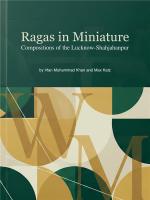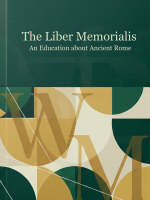In honor of International Open Access Week, we are excited to share details about two forthcoming publications from W&M Press. See updates about OA publications by W&M Press on the Libraries' website.
Ragas in Miniature: Compositions of the Lucknow-Shahjahanpur Gharana
By Irfan Khan and Max Katz

Co-authored by William & Mary professor Max Katz and his teacher, senior hereditary sarod player Irfan Khan, Ragas in Miniature: Compositions of the Lucknow-Shahjahanpur Gharana makes available to the public for the first time the inherited repertoire of a celebrated lineage of sitar and sarod players central to the story of Hindustani instrumental music in the 19th and 20th centuries.
Over fifteen years in the making, the book fulfills Irfan Khan's long-held desire to record and document his family's musical heritage for posterity. This accessible e-book is structured around 136 compositions performed in definitive demonstration by Khan and embedded as high quality audio files directly in the text. Each recording is accompanied by a basic transcription in the standard and intuitive notation system of North India, and by a short, written discussion between Khan and Katz. These dialogues situate each composition within the family history, but also frequently extend to stories, narratives, and memories.
Ragas in Miniature thus offers not only miniature representations of scores of North Indian ragas in Khan's tradition, but an intimate glimpse into the oral transmission process by which the music has survived for generations—a landmark document of both musical heritage and living discipleship.
Liber Memorialis
Edited and Directed by Molly Swetnam-Burland

The Liber Memorialis or “Memory Book” is a short work, written in Latin, of uncertain date, but belonging to the later Roman imperial period (c. 200 CE – 3rd century CE). The author identifies himself as Lucius Ampelius. He addresses the work to a child named Macrinus: “Since you desire to know everything, I have written this book as an aid to your memory, so that you can learn about what the world is, what the elements are, and what the human race has accomplished.” This work, along with a few others roughly contemporary in date, are among the first extant works of literature specifically written for children. The Liber Memorialis thus offers us an unparalleled opportunity to investigate what children were interested in, what kinds of knowledge they were expected to acquire and be able to produce, and how authors might craft prose that was both useful and intelligible to them. Our goal is to offer a new translation, in English, accessible to scholars and children alike.

